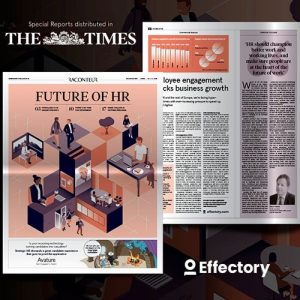Maybe you have been too busy to notice, but we are in the midst of the fourth industrial revolution. Interacting and colliding trends, including changing demographics, globalisation, urbanisation, technological progress, inequality, political uncertainty and climate change are having a profound impact on society and the labour markets.
Jobs of the future: Humans and robots hand in hand?

These are challenging times, but also exciting times. It has been estimated that over 50% of today’s jobs can be partially or fully automated. Hence the growing worldwide concern about the rise of AI and robots. The reality is not so black and white. Instead of AI (Artificial Intelligence) the nearby reality is AI (Augmented Intelligence). In other words, “cobotics”, humans and robots working together, hand in hand (so to speak). The term cobotics comes from the fusing of “cooperation” and “robotics”. Instead of taking over individual jobs, “cobots” increase human ability and coexist with human workers. Put simply, the machines do the mundane manual labour, while humans focus on the complex problem-solving aspects.
Are you ready for the “Middle-Class Bloodbath”?
Most people realise that today’s jobs are not necessarily tomorrow’s jobs. Whilst technology makes millions of jobs redundant it also creates millions of new jobs.
The World Economic Forum (WEF) conducted an extensive survey of 350 executives across nine industries in 15 of the world’s biggest economies to generate a report: The Future of Jobs. According to their research 75 million jobs will be displaced by AI, robotics and automation by 2022. At the same time, 133 million jobs will be created, as organisations shift the balance between human workers and machines.
The assumption most of us make is that routine, low-skilled jobs will be the first victims of new technology. It’s true that manual assembly/factory workers will be amongst the hardest hit. However, the WEF report tells a more alarming story. It will be, in their words: “The Middle-Class Bloodbath”. Financial analysts, accountants, auditors, lawyers, bank tellers, statistical, finance, and insurance clerks, general managers, business services managers, administrators, and executive secretaries are all listed under “redundant roles” over the next five years.
According to the WEF, the roles taking their place will include data analysts, AI and machine learning specialists, innovation and digital transformation experts, robotics professionals, user experience and interaction designers, process automation experts and people and culture specialists. Jobs based on empathy and original human thinking, which machines can’t replicate (still about 30 years away!).
The Future of HR Special Report
Technology is changing how HR will function in the future. This report explores the impact of AI & big data plus how to use employee engagement for growth.
DownloadHiring the right people for the future
We are all so wrapped up in AI, robots and tech, that we forget the most simple fact. The future of work is actually about people. Specifically, having the right people to build a business. This starts with being smarter when hiring. For example, how someone does in a job interview has no correlation with how well they will do the job. The three most important qualities in a candidate are:
-
Mental ability: creativity, problem-solving and critical thinking.
-
Conscientiousness: the quality of wishing to do one’s work well and thoroughly.
-
Emotional intelligence: the ability to identify and manage one’s own emotions as well as the emotions of others.
Survival of the fastest
What is very clear about the future of work: the skill set required for both old and new occupations will change in most industries, transforming how and where people work. Flexibility, continuous learning and adaption is unavoidable. It’s survival of the fastest, because new jobs will be replacing old jobs more rapidly than ever before. Continuous change is the only constant.
Is your organisation future-proofed? What do your people think about the way they work? If you’re looking for some insights, contact Effectory for a free consultation.
Theme survey for organizations
Investigate the issues that stand in the way of your organization’s growth and success
view solution